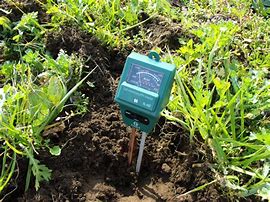Farming is not just a business for some people. For those who worked hard during their younger years and have been saving up for life outside the city, farming can be a hobby. It can be an activity that could both bring money and fulfilment for retired seniors.
Now that you’ve retired and you’re preparing to move to the country where you want to build a small farming business, you need to consider essential aspects of the lot you will buy before any farming task is commenced.

- Visit the Lot in Person
It is vital to check the land in person before you make a huge purchase. This is a considerable investment that you should not take for granted and you should make sure you’re doing everything right from the start. Instead of sending someone else to see the lot, it is best to go in person so you can discuss and negotiate with the seller.
- Make Proper Inspections
Even if you’re not an expert on land areas, it is crucial to make the appropriate inspections. As part of the checks, you should use a soil PH tester from Instrument Choice to determine if the ground is too dry or too wet. Moisture levels should be just right so you can plant the vegetables or fruits you prefer.
A reliable soil PH tester from Instrument Choice is necessary for inspecting your new farmland, especially if you’re planning to plant crops. Some seeds do not grow well on soil that’s too damp while others can bloom in dry ground. Using a soil tester will help you determine what kinds of crops you should plant.
- Plan Accordingly
Once you’ve decided that the land you’re purchasing is just what you’re looking for, you have to list down your plans. Whether you want to grow livestock or plants, you need to consider your budget, the construction process, and other relevant matters related to your move from the city to the country.
- Get Advice
You should also get advice from farming experts who have been in the industry for a long time. Even if you’re doing farming as a hobby, you still need to do it right so whatever you invested won’t go to waste. You can check with farm equipment professionals and ask them about recommendations on soil types, seeds, fertilizers, and other essential factors that come with farming.
Farming can be really fun if you put not just your investments but also your heart in it. You will enjoy every harvest and appreciate your hard work once you see profits, no matter how big or small these are.


